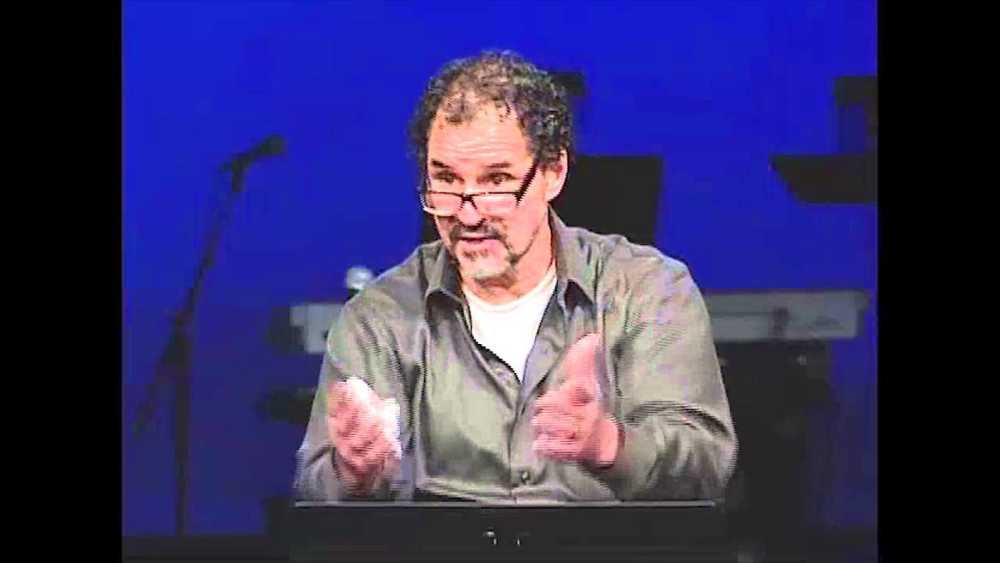We run our website the way we wished the whole internet worked: we provide high quality original content with no ads. We are funded solely by your direct support. Please consider supporting this project.

Homosexuality and the Church: Finding a “Third Way”
Here is a word I a shared this last weekend with Woodland Hills Church (where I’m senior pastor) in response to numerous questions I’ve received over the last several months. People have asked me why the leadership of WHC refuses to jump on the bandwagon of evangelical churches in the Twin Cities who rally their congregations to get out and vote “yes” for the marriage amendment currently on our ballot in Minnesota. Others have asked for clarification on WHC ‘s view of homosexuality, especially in light of the fact that we host a vibrant LGBT support group (called “Sacred Space”) that accepts people where they’re at, regardless of how they personally integrate their faith with their sexual orientation.
Many progressive, evangelical Christians like myself face something of a conundrum regarding these sorts of questions. On the one hand, we believe the Bible is God’s Word and we can’t with integrity deny that it teaches that sex outside the parameters of a monogamous, life-long, marriage covenant is sin, whether it is sex with a person of a different gender or sex with a person of the same gender. We find the arguments of those who try to argue that Rom.1:24-28-, I Cor. 6:9 and I Tim. 1:10 don’t apply to monogamous gay relationships simply aren’t very persuasive. On the other hand, we sense that something is “off” with the stance of the church throughout history, and the stance of most evangelical churches today, toward gay people.
For example, many of us wonder why it is that the church (rightly) embraces without question people who have been divorced and remarried – several times, in some cases –but adamantly excludes committed gay couples – couples who sometimes have a love for one another that puts the love of many straight couples to shame. What makes this question especially important is that the New Testament’s teaching that divorce and remarriage involves sin is much more emphatic and clear than its teaching that gay unions involve sin (see e.g. Mt. 5:32; 19:9). In fact, while Jesus taught on the sin of divorce and remarriage several times, he never even mentioned homosexuality.
My point is not that the church should exclude divorced and remarried people. While divorce and remarriage “misses the mark” of God’s ideal, which is the Bible’s definition of sin (harmartia), I believe that, by God’s grace, this is sometimes the best option for people. My point is rather that there seems to be an inconsistency on the part of the church on this matter, and many of us wonder why.
But this is hardly the only inconsistency of the church that some of us sense on this issue. Many of us also wonder why it is that the American church has always tended to minimize the sins that American Christians are typically guilty of while construing homosexuality out to be a “deal-breaker” sin. In fact, as I stated in my message this last weekend, the sins that typically characterize American Christians and that the American church tends to minimize happen to be sins that are denounced much more emphatically and much more frequently than homosexuality. For instance, there are thousands of verses in the Bible denouncing idolatry (which would include greed, gluttony and anything else that you go to for worth and security other than God). By contrast, there are three verses in the Old Testament and three verses in the New that mention same-gender sexual activity. Yet, people guilty of the former sins are embraced without question in our churches, while people guilty of the latter sins tend to be excluded. What’s wrong with this picture?
One of the most fascinating aspects of Jesus’ ministry is that when people tried to force him to weigh in on either-or issues, he always managed to point out a third alternative — the kingdom alternative. The “gay-issue” that many of us are wrestling with these days is usually presented as an either-or issue. Christians must either accept that homosexual activity is a sin that bars people from the kingdom and the church, which is where most evangelical churches stand today. Or they must accept that there’s absolutely nothing sinful about homosexual activity, at least in a covenantal context, and that it is therefore perfectly okay with God, which his where many liberal churches today have gone.
In this message, I try to follow the kingdom strategy of Jesus and point out a third alternative. If we collapse our Pharisaical sin-scales that rate some sins worse than others, if we obey Jesus’ teaching to consider our own sins as much worse than others (Mt. 7:1-3), and if we commit to “living in love, as Christ has loved us and gave his life for us” (Eph. 5:1-2), I believe a third way presents itself to us.
This message leaves unanswered a multitude of questions that could be raised regarding LGBT people and the church. The goal of this message is to simply point us in the direction of a third way of addressing these issues – a way that transcends the “either-or” dichotomy we’ve usually been presented with. It’s a way in which we confess that we are all sinners, saved by grace, and in the process of being transformed by the love of God. It’s a way in which we wrestle with all of our issues in love and from the inside of the faith rather than in judgment and as a precondition for being accepted into the faith.
Be blessed!
Category: Essays
Tags: Essay, Homosexuality, Love, Politics, Sexuality
Topics: Ethical, Cultural and Political Issues
Related Reading

What About the Arizona Anti-Gay Bill?
HumanSeeHumanDo via Compfight The recent anti-gay bill in Arizona which was passed last week by the state’s Legislature and now sits on the desk of the Governor, would allow companies to deny service to or discriminate against gay people based on the religious beliefs of the business owner. In response, Greg has tweeted: “The governor…

Sermon Clip: Brain Reign
In this short clip, Greg Boyd discusses the 3 parts to who we are to help understand the brains role. What does role does the mind, body, and spirit play in who we are? In the full sermon we look at the New Testament teaching on reigning over the relational brain. Understanding how God wired…

Did Jesus Rise from the Dead?
Trying to get around the Resurrection While Jesus’ life, claims, and miraculous ministry set him far apart from all other human beings, it is his resurrection more than anything else that stamps him as the one and only Son of God. But, precisely because it sets Jesus apart as unique and requires an affirmation of…

Did Jesus Have Two Minds?
As I laid out in the previous post, I believe Jesus is fully God and fully human. The question is: How is this possible? How do we talk about the way that Jesus was fully God and fully man? The Creed of Chalcedon (451) tries to answer the question this way: We, then, following the…

The Image of Cross-Like Love: God’s Self-Portrait, Part 6
In the previous blog I argued that God is cross-like love. In this blog I’d like to take this a step further by demonstrating why the cross alone could function as the definitive revelation of God’s true character and by showing how this revelation weaves together everything Jesus was about. If you want to know…

Praying for Peace During Political Hostility
Jesus calls his disciples to be “peacemakers” (Mt 5:9). During this season of political animosity, we have a great opportunity to practice being disciples by offering an alternative way of interacting with each other. One primary way we do this is by using the unique authority we have to affect the world through prayer to…
